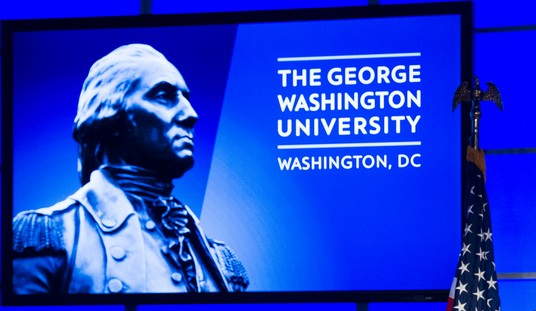What place would take billions of dollars and use it to demolish their economies? Maybe Europe, unintentionally. With youth unemployment in Greece and Spain now in excess of 51% and rising, Derek Thompson of the Atlantic notes that the actual effect on both countries joining the Euro was to make their workforce unemployable. “Once they joined the euro, Greece built a government bubble, Spain built a housing bubble, and both economies are weighed down by inflated prices and wages than make their economies uncompetitive.” Neither the average Greek nor Spaniard deliberately set out to malinvest their resources. It just turned out that way as a result of the economic and social model they adopted.
The world economic crisis has become a belated referendum on ideas which were received wisdom only a few decades ago. Back then every progressive individual knew that the path to the future lay in supporting Revolution in the Third World and being supported by Welfare in the First World.
Yes, that was the wave of the future. Unfortunately it didn’t work out that way.
The ideas espoused by the postwar anti-colonialists, according to George Obama, the President’s slum-dwelling brother, have done nothing but mire Africa in corruption and self-pity. The comparisons are stark. George notes that at the end of the British empire, Malaysia, Singapore and Kenya all started at the same economic level. Today, he ruefully concludes, that Kenya’s Commonwealth partners are streets ahead .
South Korea which was destitute, devastated and poorer than Kenya in 1950 is so far ahead it could be the envy of Britain, with its seasonally adjusted unemployment rate of 3.2%. But that only emphasizes George Obama’s point. It’s often overlooked that the collapse of the European colonialism that ultimately led to Kenya’s independence had its roots in the other decolonization model: the modernization of Japan.
In that model, Japan sought nothing from Europe but its skills and knowledge. But once in its possession, the Nipponese and later the Koreans and Chinese simply got rich and went out and bought — in the case of Japan, took — what they wanted. By contrast, Third World Theory — which George’s father, Barack Senior espoused, called for state-led industrialization, an emphasis on grievance and in general, the habit of living in the past.
Thus the current crisis is shaking the intellectual foundations not only of European welfare but the received anti-colonial narrative. It may be asked, which anti-colonial model worked? Although the British Empire was weakened by the European wars what ultimately killed colonialism was the Empire of Japan, whose conquests thoroughly destroyed the idea of European supremacy not only in Asia and India, but ultimately in Africa as well. Ultimately it was Yamashita, not the Mau Mau, who drove the British from Africa.
To be sure the authoritarian Asian model is facing its own challenges. It may prove as transient as Leopold’s Congo. But as George Obama notes, it has had a good run, which is more than can be said for the rote university anticolonialism his own father, Barack Obama Sr. espoused. That was a complete bust, discredited everywhere except in Washington.
Indeed history may conclude that people like Obama Senior and Robert Mugabe, rather than being the first of the new Africans, were in reality the last of the old colonial dupes; the final poisonous legacy of universities where people like Ayers taught the export versions of a murderous ideology which having failed in Europe sought consolation by making its failure complete globally.
It is not inconceivable that one day, the portraits of Che Guevara, Patrice Lumumba or Robert Mugabe will be taken down in favor that of Meiji, Deng Xiaoping and Lee Kuan Yew. Not that they were less ruthless, but at least they were winners. Whatever befall, Sony has proved more successful than Kony.
The intellectual crisis in Europe and in the Third World has ended the old certainties at the same time it has created the possibility of a clean slate. Perhaps we are finally liberated from the compulsion to cart around the intellectual baggage of the 20th without necessarily having to discard its better bits.
The characteristic of the end of an era is that people are once again able to see the basic questions as if they were new. The privilege of failure is that it permits us to answer afresh, what do we mean by ‘freedom’? ‘Meaning’? Or even ‘hunger’? For if we can’t ask those questions, then what’s a new century for?
It is perhaps difficult to imagine two people as different as Steve Jobs and the fictional Scarlett O’Hara, yet both are responsible for popular culture’s most famous characterizations of hunger. Steve Job’s exhorted his listeners to “stay hungry”, while Scarlett vowed to “never be hungry again”. They were of course speaking of two different kinds of hungers. But then again Steve and Scarlett were speaking from different centuries, as they had a right to. And in each generations answers to the eternal questions of values lies the character of their time. Tomorrow — not yesterday — is another day.Belmont Commenters
How to Publish on Amazon’s Kindle for $2.99
The Three Conjectures at Amazon Kindle for $1.99
Storming the Castle at Amazon Kindle for $3.99
No Way In at Amazon Kindle $8.95, print $9.99













Join the conversation as a VIP Member